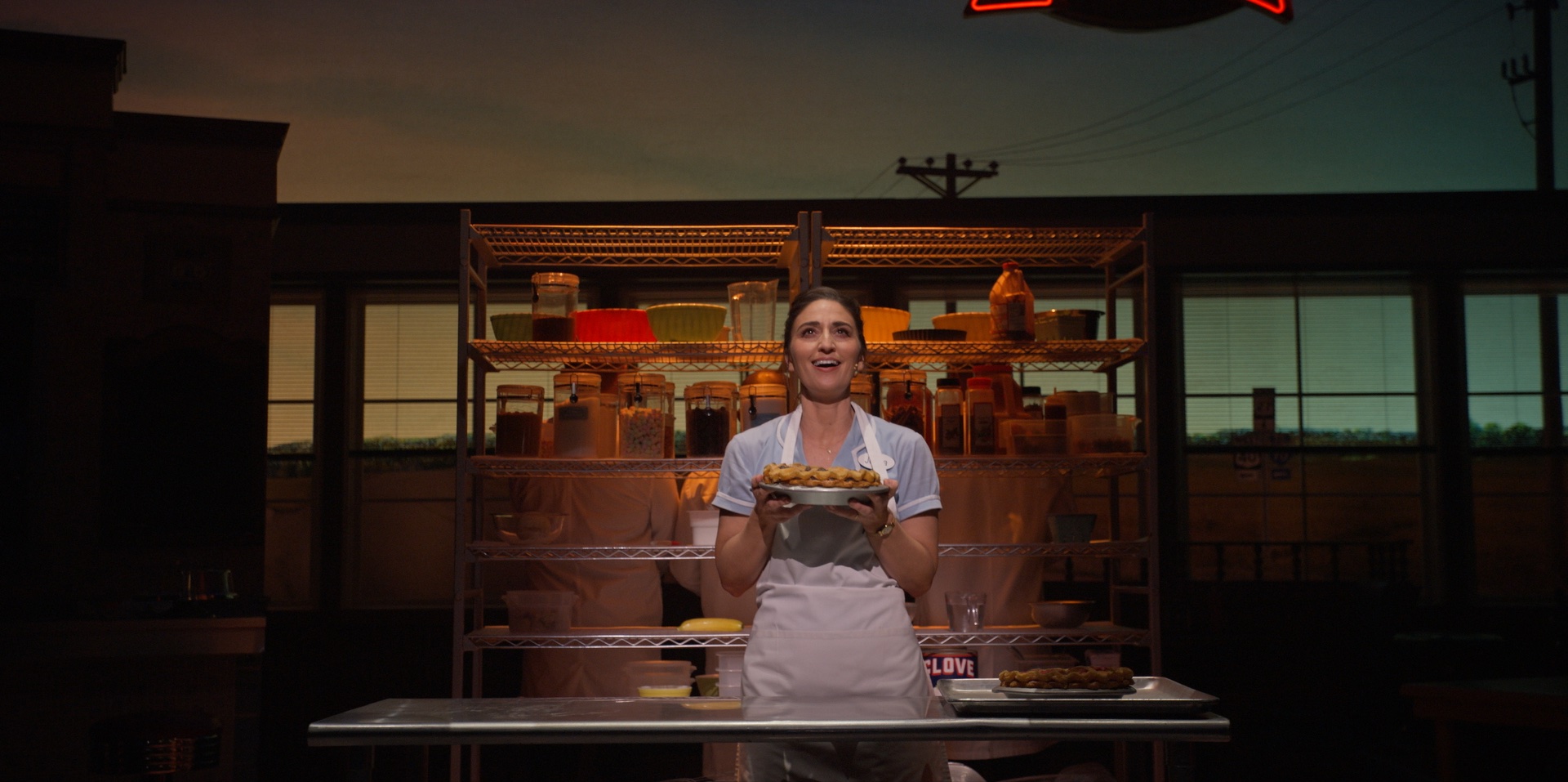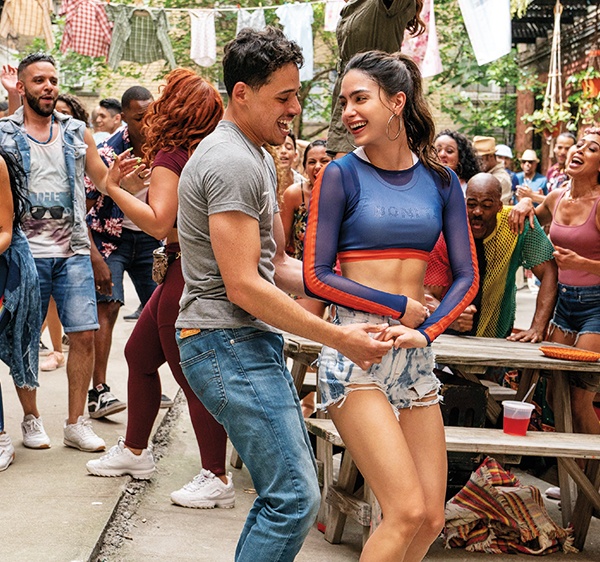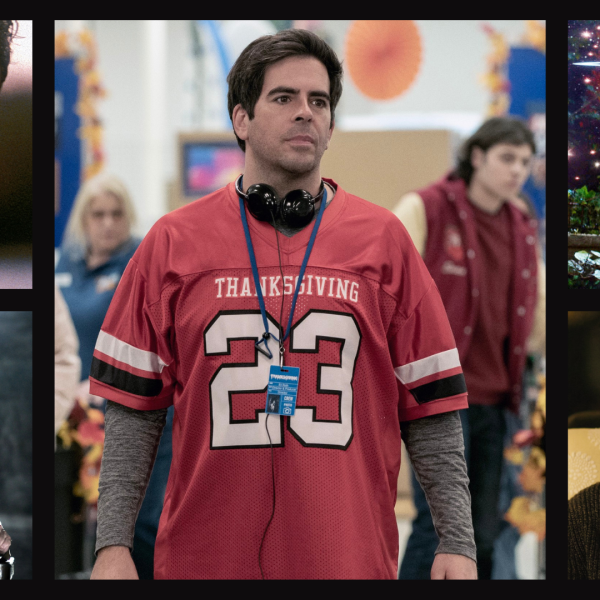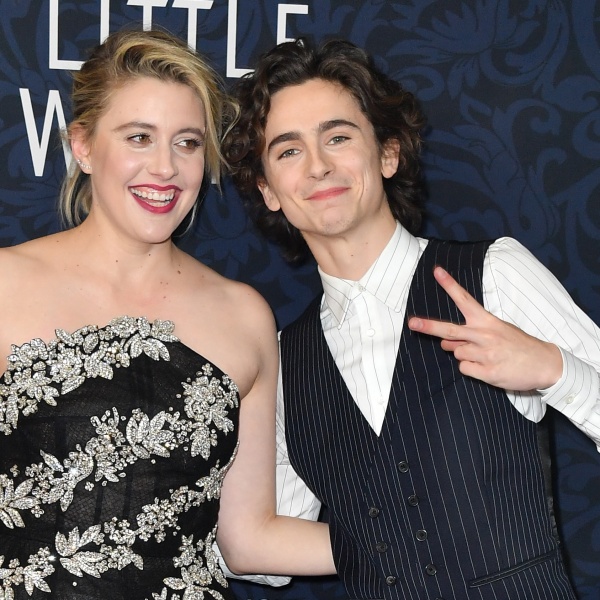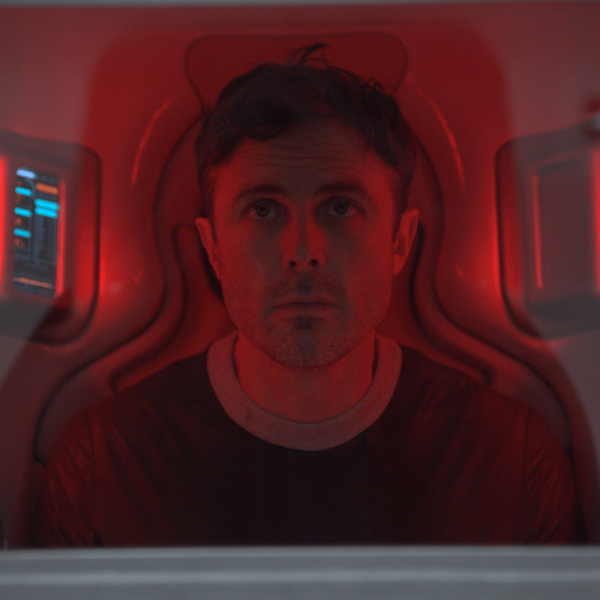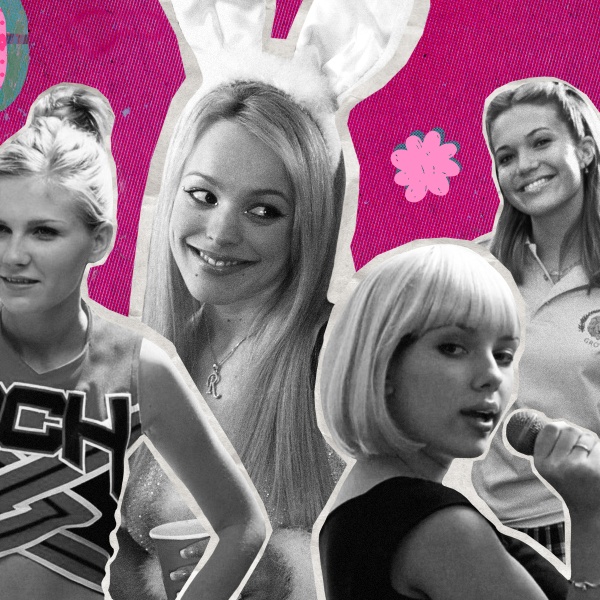Here’s a little Broadway secret: A lot of musical adaptations of movies are fun because the film is beloved, but as a unique product the songs — and therefore the theatrical experience — are so-so.
That’s not the case with “Waitress,” the 2016 Broadway musical based on the 2007 film by the beloved late filmmaker and actress Adrienne Shelly. With Tony-nominated music and lyrics by singer/songwriter Sara Bareilles, each song is a thrilling addition that both sheds light on the characters’ interior lives but also has that piano-pop earworm quality that makes you want to add the songs to a Spotify playlist asap.
The show — a live capture film version of which will hit movie theaters nationwide on December 7 — follows Jenna (Bareilles in the filmed version), a waitress and pie maker working at a dead-end diner who dreams of a bigger life for herself away from her abusive husband Earl. An unexpected pregnancy, a dreamy doctor, and supportive friends shake up her life as she attempts to find out ~metaphorically and literally~ “what baking can do,” to grab the title from just one of Bareilles’ moving numbers.
“I hope it feels like a little bit of comfort food,” Bareilles told IndieWire about watching the live capture. “I think right now the world is so dark, and it’s really hard to hold that there is great joy and there is great tragedy butted up against each other all the time. Certainly, I feel it in myself, this incredible fatigue of despair. [And] I’m a hope-aholic! … I love that this show really gracefully dances between darkness and light. There are really heavy themes, but ultimately it is about resiliency and community and self-love. And it’s feminist and fucking cool!”
Bareilles hadn’t seen the Shelly movie when she was first approached about helping to bring the film to the stage. The “Brave” songwriter, of course, knew her way around a tune, but “I always just [wrote] songs about my own state of mind,” she explained. “So it was kind of a cool practice in radical empathy to try to find my way into another character.”
Below, a decade since it all began, Bareilles looks back at the whole creation experience, from a fateful first meeting with the director to the songs that didn’t make the final cut (see: dancing sperm) — plus the many ways the show, her Broadway debut, changed her life.
This interview has been edited and condensed for clarity.
IndieWire: You’ve talked about your first conversation in 2012 with “Waitress” stage director Diane Paulus where she told you she wanted you to be involved. Why did she say she wanted you?
Sara Bareilles: One of the things that Diane does really well is she loves to take a big swing. It was interesting to her to involve a new musical theater voice. I knew Mia [Walker, on the “Waitress” directing team] was a big fan and helped steer [Diane] to my music. But I think [what] I remember her saying is my sense of narrative and storytelling. So I think she thought that I had the capacity to work in this medium. And I was like, “I think you might be crazy. But let me try.”
Was there a moment when you were writing this where you landed on a lyric or a song where you’re like, “Oh, this is going to work. I can see the whole project now”?
Oh, God, I don’t know if I ever felt like I could see the whole project because that felt literally impossible, but “She Used to Be Mine” was the first song that I wrote for the show. And it didn’t change from the demo. So [I thought] “There’s something here that I’m feeling really connected to, even though I don’t quite see the whole thing.” There were lots of times where I doubted.
I think there’s some really terrible songs I wrote as well. I wrote a song about dancing sperm where [Jenna’s terrible husband] Earl is saying like, “Please have sex with me.” That was the chorus! [laughs] It was a terrible song. I think the thing with developing theater is you can’t be precious about [it], you just have to trust that this little organism is coming to life. But certainly having “She Used to Be Mine” come early in the process, it became kind of the centerpiece on the table.
Do you remember the first time you played “She Used to Be Mine” for someone?
I remember the first time I played it in the show, actually, I can remember that very well. We were in Florida. I felt very self-conscious, because there was the word “pie” in the lyrics: “She’s all of this mixed up and baked in a beautiful pie.” And I was like, “That’s gonna feel so weird to sing!”
But there was something that happened when I played the song. The response from the audience was like, cuckoo bananas. And I [thought], “Oh, I think this song actually works outside of [the show],” I think [that’s] a cool bridge for this project, to have a song that can live outside. The journey of that song alone has been really incredible, to watch it be embraced by so many people in so many different communities.
Tell me about going back to the musical mid-pandemic when the show“Waitress” returned to Broadway in fall 2021 as Broadway was reopening.
Everything happened quickly. Because this was not in the master plan. But we got this extraordinary arts grant from Chuck Schumer’s office. When the theatre industry is healthy, the city is better. I still really encourage people to come see theater, it has not totally recovered still to this day [from the pandemic shutdown], and it is the heartbeat of the city. And so it was important to invest in the repair of the industry.
When we assembled this wonderful cast, it also occurred to us that making a live capture had to happen. I feel so grateful, because it’s a relatively new medium. To do it in this way, I think is really embracing the reality that a lot of people can’t make it to a New York theater show. It’s just not feasible. So watching the Broadway community embrace doing a better job of bringing the theater to them will only help the industry in the long run. I think about being a little kid in Northern California, it was not on the map for us to be able to come to New York City and see a show. So getting to watch a movie of a show would have been an incredible gift. I’m excited that’s happening.
Me too!And it’s exciting to see more shows, like “Hamilton,” be filmed. A lot of theater fans wonder why this isn’t happening more. Do you have any insight into the specifics of why this was able to happen for “Waitress”? Or what the roadblock is for a lot of shows in coming to a wider audience?
I think the truth is that financially, it’s a tremendous investment. It is millions and millions of dollars to make something like this happen. And it’s not a guarantee that you’ll recoup your investment. We are talking about commercial theater, and it’s hard to get this stuff made, it’s hard to find a home for it. It’s hard to create a viable path. I hope that that continues to change as the appetite for the material grows. But the truth is, it’s just very expensive.
It’s so fun that you did your own version of the cast album [2015’s “What’s Inside: Songs from Waitress”]. Why did you want to do that?
It felt really intuitive to me. I had no context for writing songs that I wouldn’t sing. I never personally wrote for other artists; I’ve always only written for myself. And so every little song that came out felt like this little gem that I was like, “Oh, I love this one. And I love this one!” And it just felt natural to me to make a concept album. Ultimately, one thing that I think can shift in the theater is letting people get to know the material ahead of time so they come in with a little bit of familiarity. I think that’s actually a good thing.
A generation ago, so many more people were familiar with the songs from a musical than had ever seen a production of the musical, right?
They used to be pop songs on the radio!

This has clearly been a huge experience for you over the last decade. When you think back on the whole thing, is there a moment that really stands out to you?
Well, meeting my fiancé was one of them. [Bareilles’ fiancé, Joe Tippett, plays the husband character Earl in “Waitress,” a role he originated off-Broadway.]
That’d be a good one.
I had a crush on Joe from the second he walked into the audition.
Really?
Yeah. I was like, “Yes, please!”
How was working with him? Were you someone that thought about keeping relationships and work separate? Or was that something you always were really excited about?
I think it felt complicated. But it was good. It felt in a good way kind of adolescent, it felt like champagne bubbles. I was really nervous and awkward around him. So it didn’t really feel like a place to actually venture until I did. And so the build up to that was actually very delicious. And hard at the time! But kind of wonderful in retrospect. And now we’re getting married, and we have a dog!
Congratulations! But I can imagine it probably feels overwhelming when you’re looking back on all of this about how many things in your life have changed because of this experience.
All I feel about that is just a tremendous sense of gratitude and sort of faith in the way the universe works. The show came in and was a reorganizing principle for my life. It arrived, and it moved everything around. And now everything is better. I mean, not everything is perfect. But everything is better because the show happened. It was a teacher, it was a friend, it was a community builder. This project remains like a new family member that I’m so glad I have.
Bleecker Street and Fathom Events will release “Waitress: The Musical,” directed by Brett Sullivan, in theaters nationwide on Thursday, December 7 for five days only.
